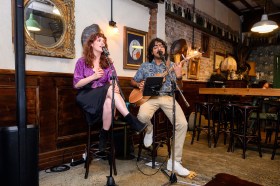The Perth International Cabaret Festival (PICF) has announced it will cease operations immediately. This means the cancellation of its planned 2025 program and marks the end of the state’s only dedicated cabaret festival.
Despite four successful festivals to date, strong audience return rates and measurable economic impact, the Festival’s Board said the decision to wind up PICF was unavoidable due to an inability to secure core operational funding. A similar fate befell Propel Youth Arts WA earlier this week.





